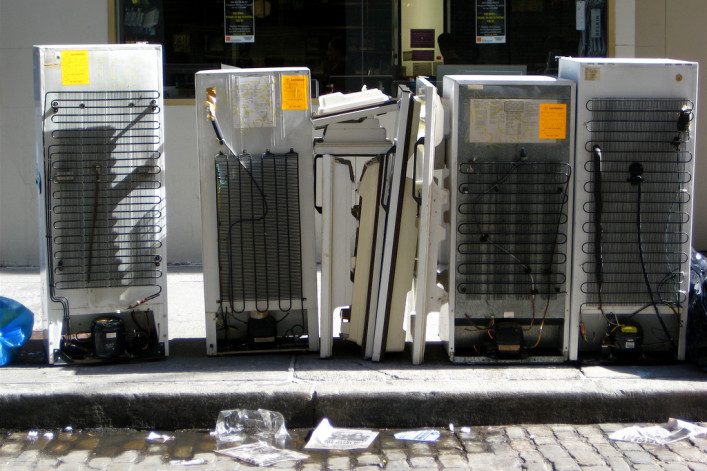These are the top 4 NYC Sandy claims getting covered by apartment insurance

If you live in an apartment or building affected by Sandy, you have likely heard by now that your personal renter's, co-op or condo insurance policy doesn't cover damage from storm-related flooding or (with very few exceptions*) your temporary housing expenses.
There are, however, several types of Sandy-related claims that insurers are paying, says NYC apartment insurance broker Jeff Schneider of Gotham Brokerage, which has assisted several hundred customers filing Sandy claims and fielded hundreds more phone calls from out-of-luck apartment dwellers, the majority inquiring about alternative housing coverage.
"They're coming in from everywhere--Brooklyn, Queens and Manhattan," says Schneider, whose Lower Manhattan office building, which sustained moderate flood damage, is located just across the street from a huge swathe of residential buildings affected by the storm, many still uninhabitable.
Schneider says these are the 4 Sandy-related claims NYC apartment dwellers are filing--and that insurers are paying--from most frequently filed to least:
1. Spoiled food: It seems that New Yorkers may cook more often than they are rumored to. Claims for referigerated or frozen food spoiled by power outtages top the list of recoverable Sandy-related claims filed so far by Gotham's apartment-dwelling customers.
And insurers are paying readily.
"We see a lot of people getting paid the $500 maximum," says Schneider, explaining that "most insurance companies have a $500 limit for that and a lower deductible, like $100."
Some insurers whose policies are a bit pricier will pay more.
"Chubb will cover $5,000 subject to a $250 decuctible," he says.
2. Water damage from shutoff-related flooding: After water shutoffs in hundreds of apartment buildings across the city, many residents apparently either forgot to turn off their faucets or turned the knobs the wrong way.
The result: Overflowing sinks and bathtubs causing water damage that extends 5, 10 or more floors below.
"Insurers are covering damage whether you are the one who left the water on, or you're a neighbor who was affected," says Schneider.
3. Burned-out computers & appliances "When power was restored in many buildings, there was a power surge. We are seeing many burned out computers as well as appliances ranging from refrigerators to and flat-screen tv's," says Schneider.
4. Wind-related damage "There have been very few wind-related claims in NYC to apartments," says Schneider.
Among them, he says, is a claim for a large pane of glass that fell from a West Village terrace to the street below. (Somewhat ironically, the pane of glass was meant to keep people from falling off the terrace.)
If your Sandy-related damage doesn't fit handily into one of the four categories above, you might be covered if you bought flood insurance at least 30 days before the storm hit; some flood-related damage would be covered, but not all--including, for instance, anything stored inside your basement.See this New York Times article for more info.
Another avenue to pursue is FEMA, which is making grants and loans available. For more information, go to http://www.disasterassistance.gov/.
--
*Your temporary housing claim may be covered if you purchased a more expensive policy which insures against loss of use on an "all-risk" basis, says Schneider, meaning that the burden is on the insurer to show why a claim is not covered.
"Since it is not clear in some buildings why an evacuation was ordered--water, wind, or public safety--or how water came in, we believe there are situations where some payments are being made for loss of use," says Schneider.
Related posts:
What now? A post-Sandy guide to your rights as a refugee renter or owner
Here's why you should file your Sandy insurance claims ASAP--and how to do it
About that flood insurance; city preps for second wave of temp housing crisis, and more
Rent Coach: Does my landlord have to rebuild my roofdeck?
Mortgage lenders demand last-minute post-Sandy inspections. Could buyers lose their deposits?
A displaced downtowner offers his two cents, to management and residents alike

























